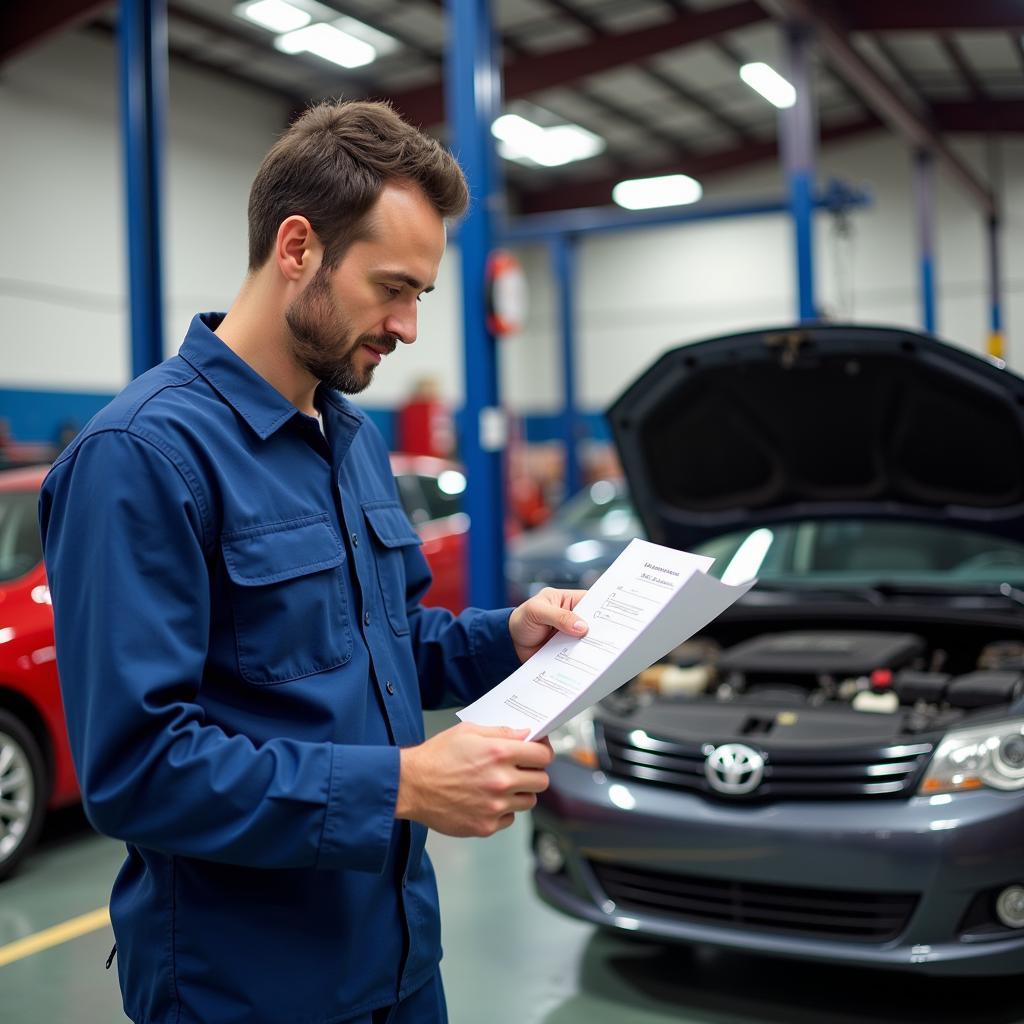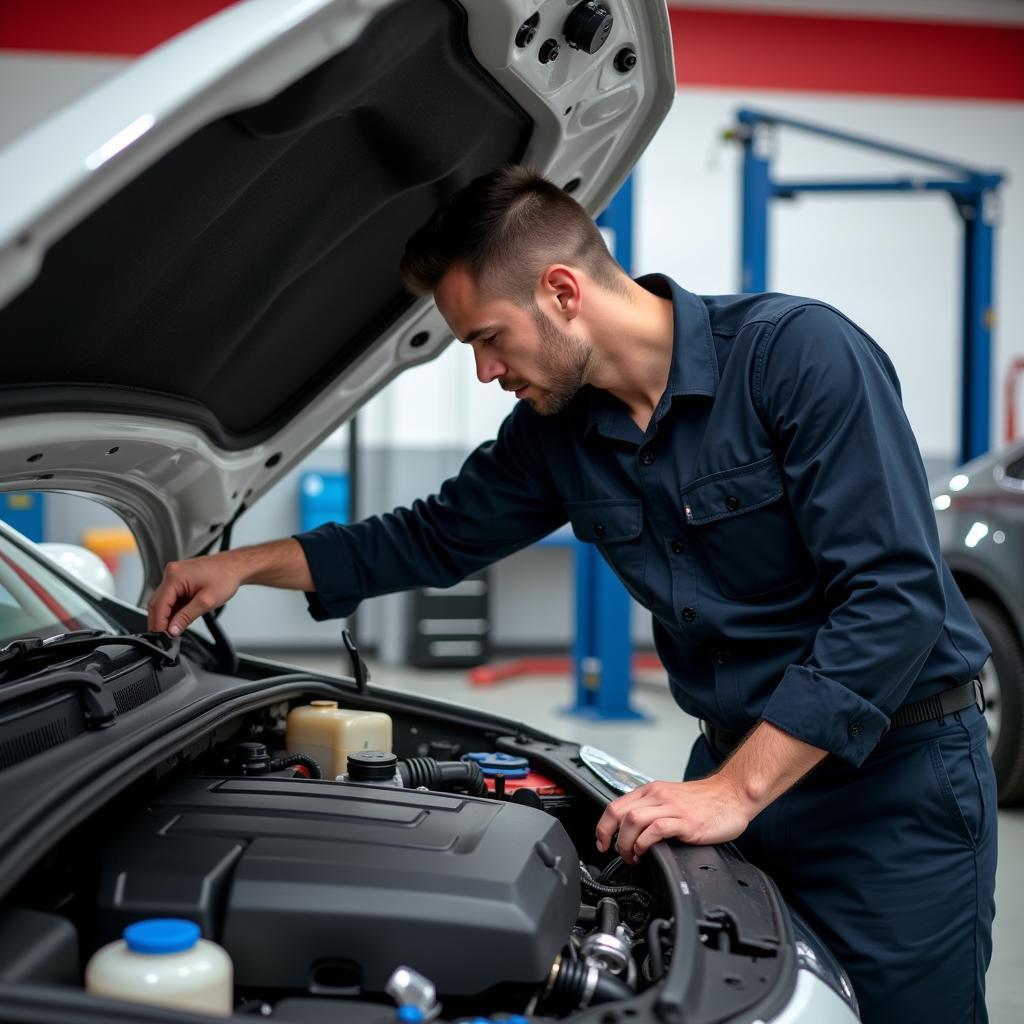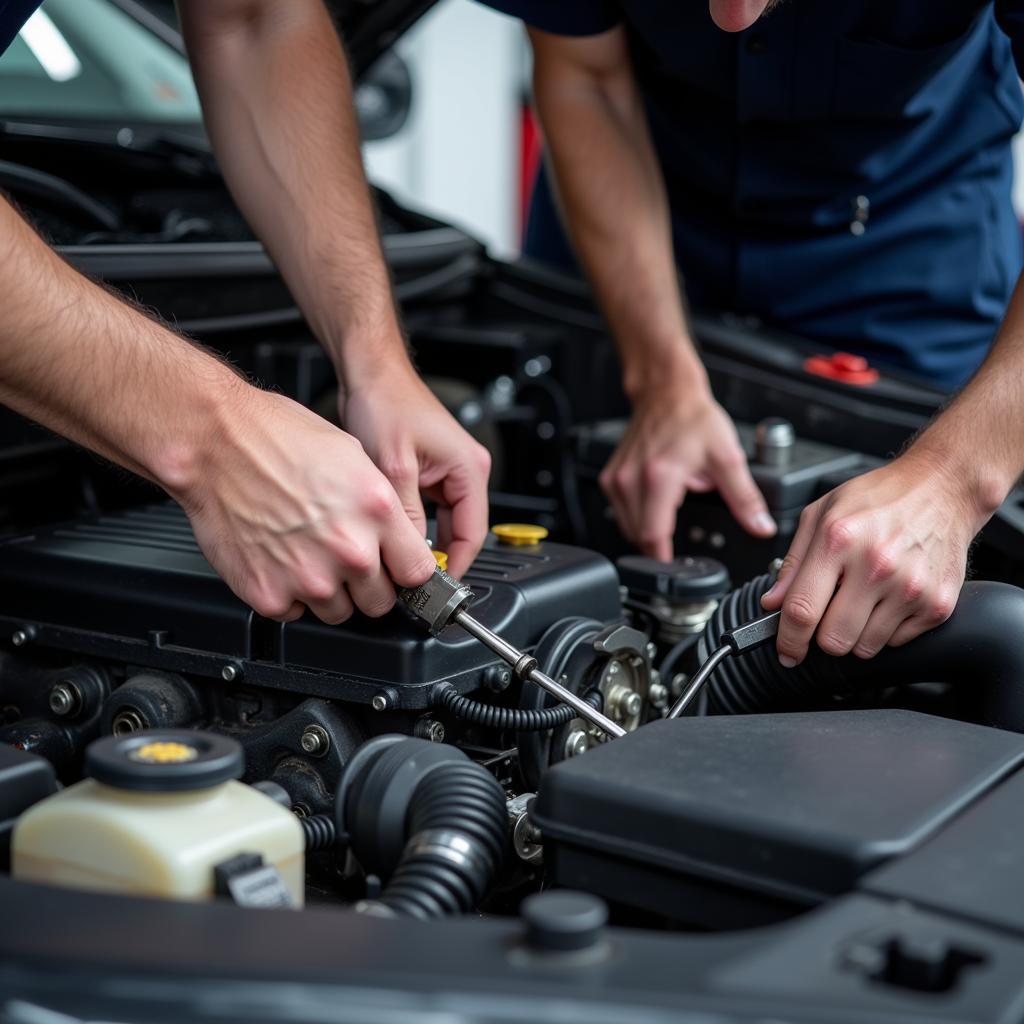How Often Should I Service My Car? A Comprehensive Guide
Knowing how often to service your car can be confusing. Between manufacturer recommendations, mileage intervals, and those pesky dashboard lights, it’s easy to feel overwhelmed. This guide will provide you with all the information you need to understand car servicing schedules, ensuring your vehicle stays in top condition for miles to come.
Decoding Your Car’s Service Schedule
The most straightforward answer to “how often should I service my car” lies within your owner’s manual. Manufacturers outline specific service intervals based on mileage and time, tailored to your car model. These intervals usually fall into two categories:
1. Minor Service: Typically recommended every 6 months or 5,000-7,500 miles, a minor service focuses on routine checks and replacements. This often includes:
- Oil and filter change: Essential for engine lubrication and performance.
- Fluid top-ups: Maintaining brake fluid, coolant, and washer fluid levels.
- Tire pressure check and rotation: Ensuring even wear and optimal fuel efficiency.
- Visual inspections: Identifying potential issues early on.
2. Major Service: Recommended annually or every 10,000-12,000 miles, a major service is more comprehensive and delves deeper into your car’s systems. This often includes all aspects of a minor service, plus:
- Spark plug replacement: Crucial for efficient fuel combustion.
- Air filter replacement: Maintaining clean airflow for optimal engine performance.
- Brake inspection and potential pad/rotor replacement: Ensuring safe and effective braking.
- More in-depth inspections: Covering belts, hoses, suspension components, and other crucial systems.
 Car Service Checklist
Car Service Checklist
Factors Influencing Service Frequency
While your car’s manual provides a baseline, several factors can influence how often you should service your car:
- Driving Conditions: Frequent stop-and-go city driving, extreme temperatures, and rough terrain put more stress on your vehicle, potentially requiring more frequent servicing.
- Driving Style: Aggressive driving habits, like rapid acceleration and hard braking, can accelerate wear and tear, necessitating more frequent maintenance.
- Vehicle Age and Mileage: Older cars and those with higher mileage may require more frequent servicing as components naturally wear down over time.
“It’s always better to err on the side of caution,” advises master mechanic Robert Hernandez. “Regular servicing not only keeps your car running smoothly but also helps identify potential issues before they become major problems, saving you money in the long run.”
Recognizing the Signs Your Car Needs a Service
Beyond scheduled maintenance, your car often provides telltale signs that it’s due for a service:
- Unusual Noises: Squealing brakes, grinding gears, or knocking sounds from the engine could indicate underlying problems requiring immediate attention.
- Warning Lights: Never ignore dashboard warning lights, as they often signal issues requiring professional diagnosis and repair.
- Fluid Leaks: Puddles of fluid under your parked car could indicate leaks that need immediate attention.
- Performance Issues: Decreased fuel efficiency, difficulty starting, rough idling, or reduced acceleration can all signal a need for servicing.
The Benefits of Regular Car Servicing
Investing in regular car servicing offers numerous benefits:
- Increased Safety: Properly maintained vehicles are safer to drive, with brakes, tires, and other critical systems functioning optimally.
- Improved Reliability: Regular servicing reduces the risk of breakdowns and unexpected repairs, keeping you on the road with confidence.
- Enhanced Performance: Well-maintained engines run more efficiently, providing better fuel economy and a smoother driving experience.
- Extended Vehicle Lifespan: Regular servicing helps prevent premature wear and tear, extending the lifespan of your vehicle.
- Higher Resale Value: A well-maintained car with a comprehensive service history commands a higher resale value.
Finding a Trustworthy Mechanic
Choosing a reputable and trustworthy mechanic is essential for quality car servicing. Look for:
- Certifications and Experience: ASE-certified technicians or those with manufacturer-specific training have demonstrated their expertise.
- Positive Reviews and Referrals: Check online reviews and seek recommendations from friends or family for reliable mechanics in your area.
- Transparent Communication: A good mechanic will clearly explain any necessary repairs and their associated costs.
 Mechanic Inspecting Car Engine
Mechanic Inspecting Car Engine
Conclusion
Regular car servicing is not just an option; it’s an investment in your safety, the longevity of your vehicle, and your peace of mind. By following the manufacturer’s recommendations, being aware of your driving habits and conditions, and recognizing the warning signs, you can keep your car running smoothly for years to come.
FAQs
- Q: What does a car service include?
- A: A car service can range from basic checks and fluid top-ups to more comprehensive inspections and component replacements. The specific tasks performed depend on the type of service (minor or major), your car’s make and model, its age and mileage, and your driving habits.
- Q: Can I service my car myself?
- A: While some basic maintenance tasks can be performed at home by those with mechanical experience, it’s generally recommended to have your car serviced by a qualified mechanic, especially for more complex procedures.
- Q: How much does a car service cost?
- A: The cost of a car service varies depending on the type of service, your car’s make and model, and the mechanic’s labor rates.
- Q: What happens if I don’t service my car?
- A: Neglecting regular car servicing can lead to decreased performance, reduced fuel efficiency, increased risk of breakdowns, more expensive repairs down the line, and potentially compromise your safety on the road.
- Q: How do I know if my car needs a service early?
- A: Pay attention to unusual noises, warning lights on your dashboard, fluid leaks, and any changes in your car’s performance, such as reduced fuel efficiency or difficulty starting. These are all signs your car might need servicing sooner than expected.
For further information on car servicing, check out these helpful resources:
- What is a minor service on a car?
- Where is the best place to service your car?
- How often do you service a new car?
- Are extended car service plans worth it?
- How frequently should you service your car?
Need help determining when to service your car? Contact our team of experts through WhatsApp: +1(641)206-8880 or email us at [email protected]. We’re available 24/7 to provide you with personalized advice and assistance.

